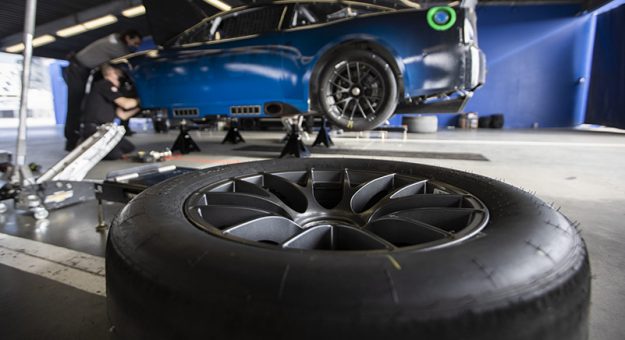IMSA.com Contributor Points out how ‘Next Gen’ Cup Series Car Will Feature More Sports Car Technology, for Good Reason
By John Oreovicz
DAYTONA BEACH, Fla. – It’s no secret that IMSA falls under the ownership umbrella of NASCAR.
NASCAR founder Bill France Sr. was instrumental in IMSA’s formation in 1969. Current NASCAR and IMSA chairman Jim France created the series that today is known as the IMSA WeatherTech SportsCar Championship. The France family is known for NASCAR, but its sports car racing roots run deep.
The NASCAR Cup Series is the most popular form of auto racing in America, so its influence on other genres of motorsports is strong. But even though it is steeped in tradition, NASCAR is implementing unprecedented changes in the 70-plus-year history of American stock car racing under its sanction.
IMSA and sports car racing are indirectly assisting that transition.
When NASCAR’s “Next Gen” Cup Series car debuts in 2022, it will feature technology that has been proven in the WeatherTech Championship and other forms of sports car racing around the world, including independent rear suspension, a transaxle-style gearbox with sequential shift, and low-profile tires with single-lug wheels.
The 2022 Cup car is also slated to receive larger brakes and a revised aerodynamic philosophy that utilizes a top-venting hood and a rear diffuser.
Sports car technology has gradually trended into NASCAR over the years. Examples include disc brakes and fuel injection. But never have so many substantial changes been introduced at once.
In short, the line between stock car racing and sports car racing is being blurred.
Although the Cup Series’ current V-8 engine will initially be utilized in the Next Gen car, NASCAR has stated it is likely to incorporate some form of hybrid technology in the future as it attempts to attract additional manufacturers to the stock car arena. That’s another area where IMSA can contribute its experience and expertise.
In conjunction with partners Bosch, Williams Advanced Engineering and Xtrac,
IMSA is already developing a hybrid system for the next generation of LMDh prototypes, set to begin racing in 2023.
Audi, Porsche and Acura have already announced plans for LMDh programs, and IMSA President John Doonan said he expects several other manufacturers to commit to the new formula.
For example, it’s not too difficult to envision a Cadillac LMDh program sharing information with the Chevrolet NASCAR effort within the walls of General Motors’ Charlotte Technical Center.
Technology transfer between IMSA and NASCAR is also being driven by the simple fact that road racing is becoming more prevalent in modern stock car competition. Some of NASCAR’s most popular events in recent years have often been road races, signaling a subtle shift in fan tastes and preferences.
After featuring just two road courses since the mid-1980s (Sonoma Raceway and Watkins Glen International), this year’s Cup Series schedule includes six road racing venues, including first-time visits to Road America and Circuit of The Americas.
Some of NASCAR’s schedule changes are undoubtedly a product of COVID-19 circumstances. But they have also been driven by NASCAR drivers voicing their desire for more road racing.
If you include recently “retired” seven-time NASCAR Cup Series champion Jimmie Johnson, the WeatherTech Championship’s season-opening Rolex 24 At Daytona featured four NASCAR regulars, including reigning Cup Series champion Chase Elliott. The Cup Series just opened its 2021 campaign with the Daytona 500, and this weekend will race on a modified version of the Daytona road course that has hosted major international sports car events since 1962, including last month’s 59th running of the Rolex 24 At Daytona.
As George Costanza of “Seinfeld” might say, “Worlds are colliding!”
But when everyone benefits, that’s a good thing.
